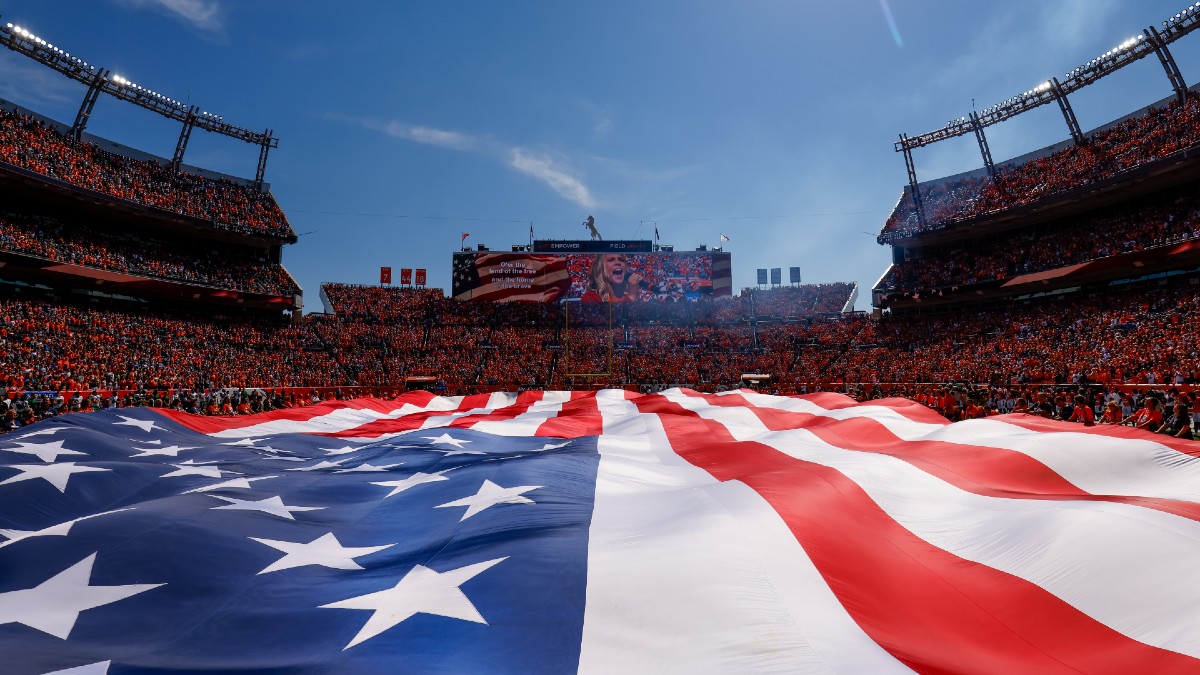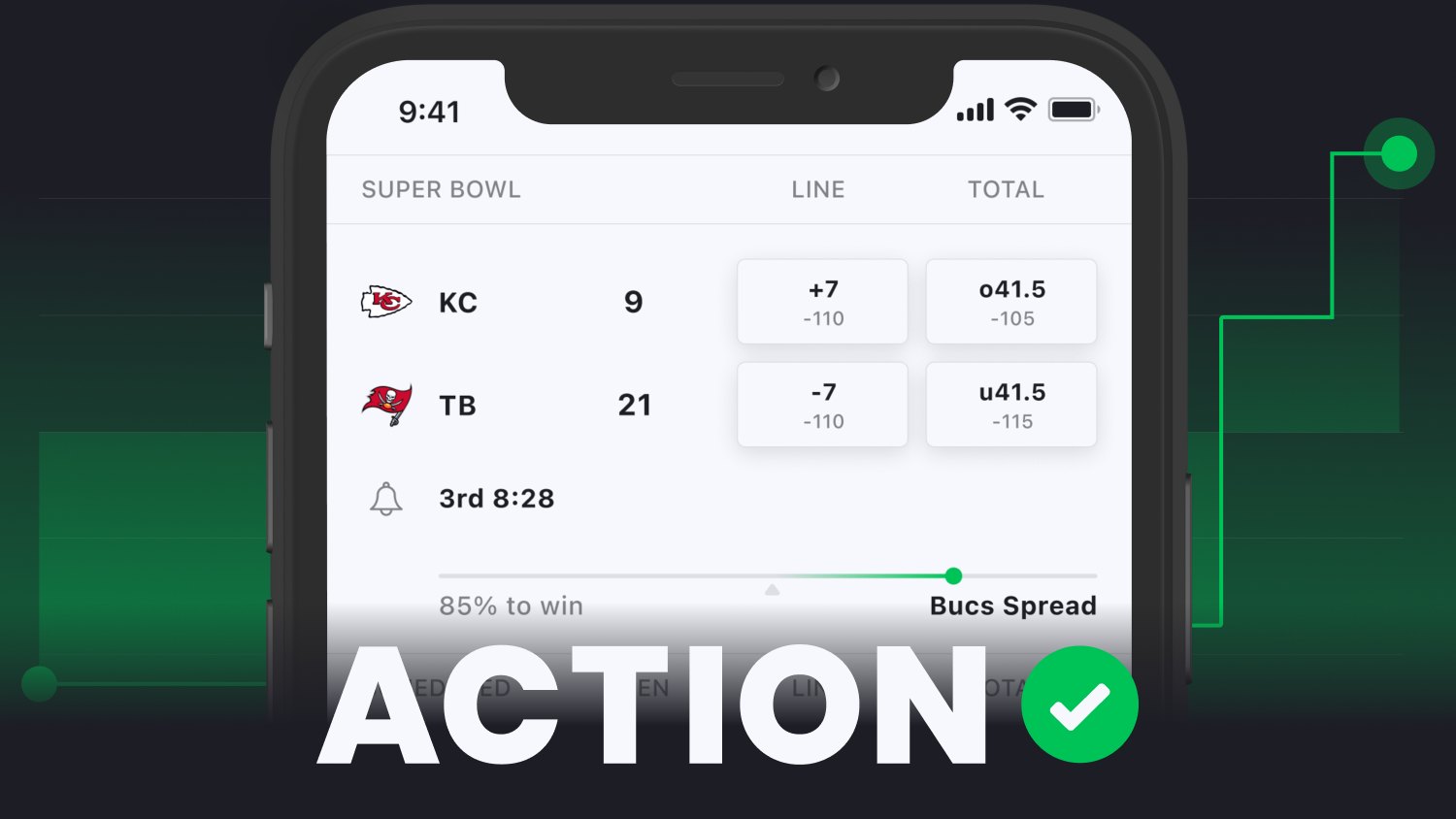U.S. Sports Betting, iGaming Markets Projected to Hit $24.3 Billion by 2026
Justin Edmonds/Getty Images. Pictured: An American flag at Mile High Stadium.
The U.S. sports betting and online casino market combined for $7.75 billion in gross revenue in 2021 and is on pace to reach $24.3 billion by 2026, according to a study by Vixio GamblingCompliance.
That would be by far the largest market on the planet — more than double the size of the U.K.'s.
Since the U.S. Supreme Court overturned a federal ban on regulated sports wagering outside of Nevada, 35 states, the District of Columbia and Puerto Rico have legalized sports betting. At least 10 more have considered it.
Three U.S. states — New Jersey, Pennsylvania and Michigan — were among the top eight online gambling markets in 2021, ahead of Spain, Greece and Belgium, according to the study.
Last year, New Jersey and Pennsylvania were the only states to crack the list. New York is on pace to join them by 2025, Vixio projects.

Legacy Daily Fantasy Operators Still on Top
For the second straight year, FanDuel led all operators in online sports betting market share, with nearly 40% of the legal U.S. market, according to the study.
DraftKings and BetMGM rank second and third, respectively, with Caesars just a hair behind.
DraftKings leads all major operators, with market access in 24 "key states," followed by BetMGM (23) and FanDuel (22), according to the study.
Challenges and Silver Linings of U.S. Market
The state-by-state nature of the U.S. market presents a constant flux of regulatory changes for companies to hurdle as they enter less established markets.
Licenses structure, fees, tax rates, rules and governance structure all vary depending on which U.S. market you're talking about. In consequence, sports betting companies have been fined $1.37 million by U.S. regulators since 2020, according to the study.
Indiana has been the most aggressive state, with total fines nearly twice the size of New Jersey, which holds the second-most dollars fined from 2020 Q1 to 2022 Q1.
But the laboratory of democracy approach taken in the U.S. isn't necessarily a bad thing.
Vixio called U.S. states "much more prescriptive" than European countries when it comes to what types of bets and events are permitted — allowing college sports, esports and awards races, Vixio said.
More than a half-dozen states, including New Jersey, Colorado and Illinois, have enacted changes to their original betting laws since first legalizing.
Innovation Accelerated by Pandemic
Though the COVID-19 pandemic shut down major sports leagues for several months, it's been a major catalyst in diversifying the approach states take to regulate sports betting, Vixio says.
In the years following the overturning of the federal ban, states — led by New Jersey's approach — typically tethered online gaming licenses to incumbent physical entities, like casinos and racetracks, allowing them to partner with two or three operators.
During the pandemic, states without casinos, like Virginia and Tennessee, have established online markets. States like New York and Maryland have passed laws allowing companies such as FanDuel and DraftKings direct ownership of online licenses, without the need for a land-based partner.
Arizona and Ohio's markets incorporate their professional sports teams into the mix, allowing them the same incumbent privilege for market access as New Jersey's casinos. Similar models have been considered in Missouri, Georgia and Texas.
How would you rate this article?

